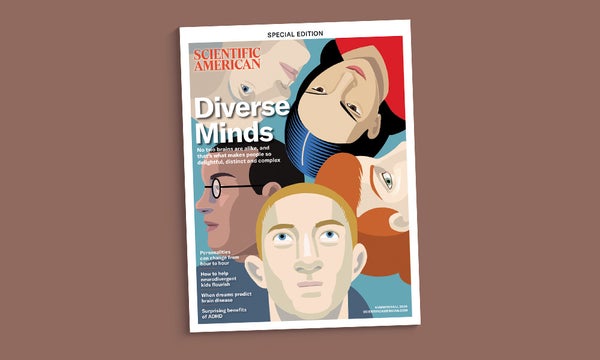September 3, 2024
2 min read
Different, Together
One person’s reality is purely theirs and often unique
In 2015 a woman posted a poorly exposed photograph of a striped dress on Tumblr. Immediately there was disagreement that spread across the Internet: some saw the dress as blue and black, others as white and gold. Remarkably, once you see the dress as either blue/black or white/gold, it may be very hard to change camps. That people could have such different perceptions of the same lace-trimmed dress is a good reminder: each human has a unique brain, influenced by their environment and developmental experiences. Dress-color disagreements aside, research is revealing that humans have a rich diversity of minds. And when they come together, they can conjure fresh insights and innovations.
Where do our individual minds come from? Tightly linked networks in the brain make a kind of symphony out of the roughly 100 billion neurons firing. Reality is perceived in all human brains, but one person’s version is unlike that of anyone else. The ventral medial prefrontal cortex seems to hold the neurological “seat” for our core sense of self. But someone’s personality can change even from hour to hour.
Brains learn in many ways, even through late adulthood. Constructive feedback (rather than rote corrections) on schoolwork employs young minds as agents in their own learning. Neuroscientists and educators teamed up to show that lessons in map reading and other spatial skills boost verbal thinking in high school students. New views on how to evaluate and support kids with dyslexia and dyscalculia—like dyslexia, but with numbers—are energizing research into the different ways that brains process information. The better children understand how their minds work, the more enthusiastic they are about learning and the more academic success they achieve.
On supporting science journalism
If you’re enjoying this article, consider supporting our…
Read the full article here

